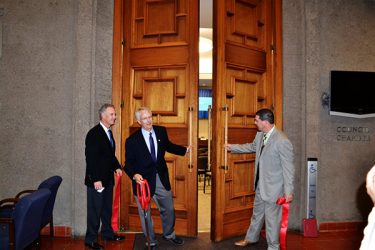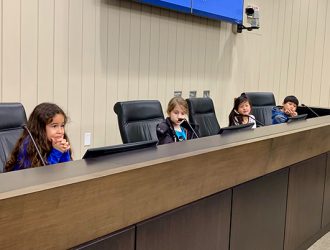
This is an op ed I wrote which was published in the Palo Alto Daily News on March 3, 2022. It relates to the departure, three years ago, of Silicon Valley Clean Water’s executive director as a result of sexual harassment allegations brought against him by a former employee (SVCW is our local public agency that treats sewage). Sadly, SVCW went to great lengths to hide the expenditure of almost $2,000,000 stemming from those allegations…which the public only is learning about, belatedly, because the Post refused to accept being denied information it was entitled to under law.
I applaud the Post for pursuing the truth about Dan Child’s departure from Silicon Valley Clean Water, the public sewage treatment agency for most of southern San Mateo County. Without the Post’s efforts it is unlikely we would ever have learned about nearly $2,000,000 of public expenditures.
But there are still some important questions left unanswered.
I was San Carlos’ representative on SVCW’s commission – its “city council”, composed of representatives from each of the communities it serves — in 2019 and 2020, after Mr. Child left the agency. I participated in discussions which led up to settling a dispute over what he was entitled to under the home equity contract the Post described.
I can’t share those discussions because they took place in closed session and I am legally obliged to protect their confidentiality. But I can share my personal reaction, after voting to approve the $875,000 home equity settlement, when I learned SVCW had previously paid $1,000,0000 to settle harassment claims brought against Child.
I was astounded. No agency pays out that kind of money unless it’s convinced something serious occurred…and if that’s true, why did the commission authorize paying Child $875,000 to settle the home equity contract? Getting terminated for cause normally voids or significantly limits such contractual rights.
This remains one of the few votes I regret in my nearly twenty years as an elected official. I cast it in ignorance because crucial facts about Child’s termination, which occurred before I joined the board, were not shared with me.
The timeline published by the Post shows the commission knew about the harassment claim in early 2018 because they hired someone to investigate it. The investigator met with Child on May 7, 2019. The board fired him on May 22nd. After Child sent in a resignation letter on May 12th.
Did the board accept Child’s May 12th resignation letter? Accepting it, or at least not rejecting it, would have complicated the home equity situation. Because being fired after resigning might’ve made it unclear whether Child was entitled to benefits under that contract. Terminating Child after he resigned could have cost the public that $875,000.
What was the commission doing during those 15 days in early May 2019? If it was concerned enough to hire an investigator what kept it from acting quickly on the results of the investigation? The Post has outlined just how dramatic the report must have been. Surely there was immediate communication between the investigator and the commission. Why did it take over two weeks to fire Child?
I would very much like to know the answers to these questions, and others. I suspect the public would as well. Shouldn’t the public be allowed to make its own judgment about whether that $875,000 was properly spent?
And what about how the employee who leveled the charges was treated? Yes, she received a settlement. But she also had to resign and accept being fined if she spoke about what happened to anyone outside her family. If those were her desires, okay. But what if they weren’t? Don’t we want to know our public agencies aren’t playing the kind of games that are all too common in the private sector when sexual harassment occurs? How can we know if we don’t know why those provisions were included in her settlement?
Unfortunately, because all the relevant discussions took place in closed session the public may never know…unless it demands a full accounting. An agency can waive the prohibition on disclosing closed session discussions if it decides it’s in the public interest to do so.
It’s time for the public to demand the complete accounting it is owed. This isn’t about sharing personnel information or exposing a former employee to scrutiny. It’s about how an employee in a difficult situation was treated by a government agency, and how that agency authorized spending almost $2,000,000 in public funds. Expenditures which were, for whatever reason, concealed from public view.




























